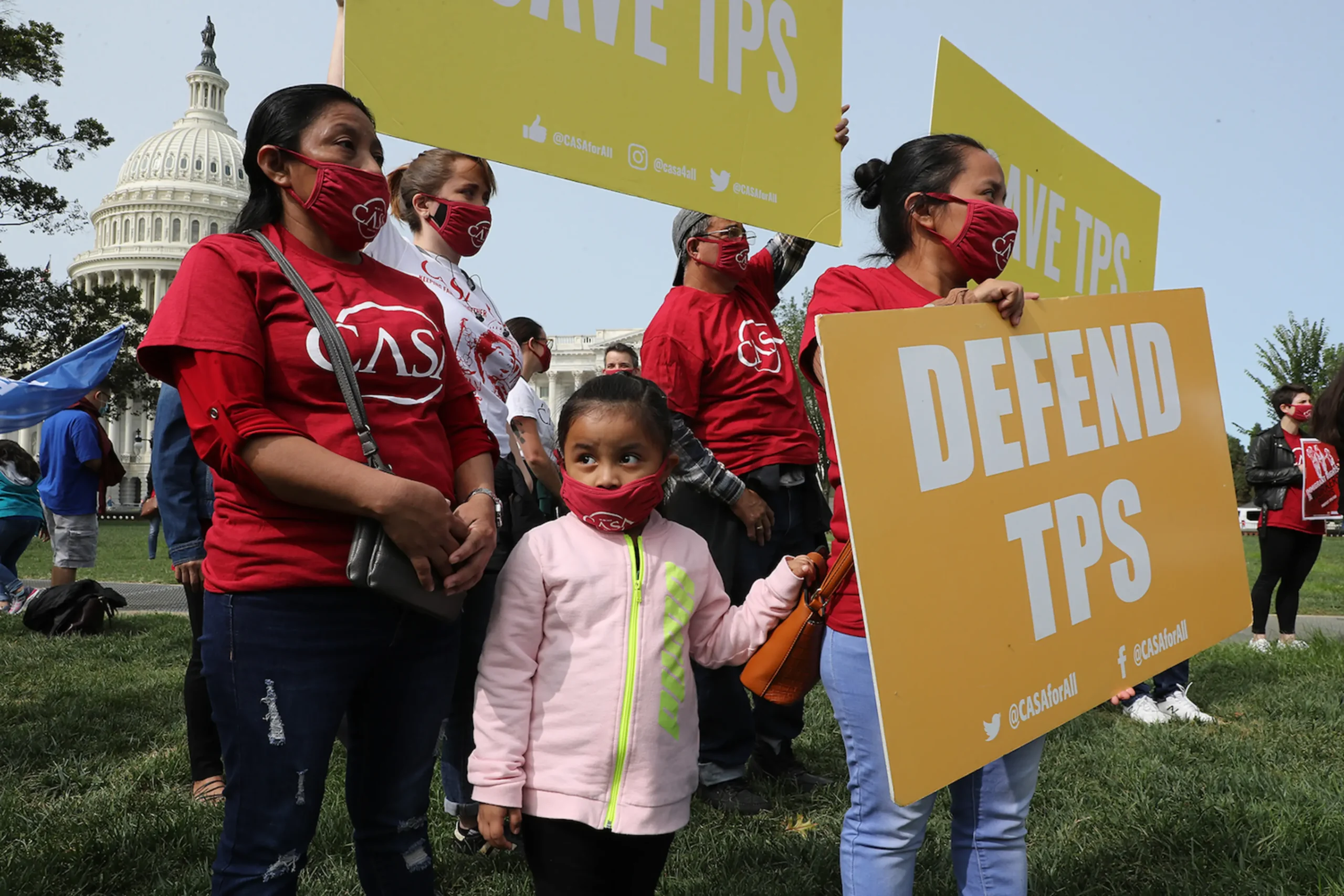As the transition to President-elect Donald Trump’s administration approaches, Democratic lawmakers are urging President Biden to take decisive action to extend Temporary Protected Status (TPS) for immigrants from countries affected by crises. The push comes amid fears that the incoming administration will take steps to scale back the program, leaving hundreds of thousands of individuals vulnerable to deportation.
What is TPS?
Temporary Protected Status, first enacted in the 1990s, provides temporary legal status and work authorization to nationals from countries experiencing armed conflict, environmental disasters, or extraordinary humanitarian crises. While originally intended as a short-term measure, many beneficiaries have lived in the United States for years, building families and careers under the program’s protections.
Currently, TPS recipients hail from nations such as Venezuela, Haiti, and Afghanistan—countries grappling with economic instability, natural disasters, or ongoing conflict. Democratic leaders argue that these individuals contribute significantly to the U.S. economy and deserve continued protection.
Democratic Lawmakers Call for Action
Prominent Democrats, including Senate Majority Whip Dick Durbin and Rep. Pramila Jayapal, are pressing the Biden administration to take immediate steps to secure TPS extensions before leaving office. In a joint letter, lawmakers emphasized the humanitarian and economic impact of the program, urging President Biden to act swiftly to safeguard recipients.
“These individuals are members of our communities,” the letter stated. “They work, pay taxes, and contribute to our economy and society. We must not allow their lives to be upended.”
The lawmakers also expressed concern over the potential rollback of TPS under the Trump administration, which has previously criticized the program as overly broad and misaligned with its temporary intent.
Republican Opposition and Trump’s Criticism of TPS
Republicans, including President-elect Trump, have long expressed skepticism about TPS, arguing that its repeated extensions undermine its original purpose as a temporary measure. During his first term, Trump sought to terminate TPS for several countries, including El Salvador and Haiti, though many of those efforts were blocked by courts or delayed due to litigation.
The incoming administration has signaled a return to stricter immigration policies, raising concerns about the fate of TPS recipients. Trump’s allies argue that scaling back TPS is necessary to address what they view as an overextension of the program, which they believe incentivizes unauthorized immigration and strains resources in border states.
“We must prioritize reforms to programs like TPS to ensure they align with their intended purpose,” a Republican immigration policy advisor said. “Allowing indefinite extensions undermines the credibility of our immigration system.”
The Humanitarian and Economic Stakes
For the estimated 400,000 TPS recipients, the stakes are high. Many have lived in the United States for decades, raising families and establishing roots. Deportation could force them to return to countries plagued by instability, where their safety and well-being may be at risk.
Immigration advocates argue that terminating TPS would also have significant economic consequences. TPS holders are integral to industries such as healthcare, construction, and agriculture, where labor shortages have already been exacerbated by the pandemic. A recent report estimated that the loss of TPS workers could cost the U.S. economy billions of dollars in lost productivity.
“Ending TPS would be devastating, not just for these families but for the economy as a whole,” said an immigration policy expert. “It’s in the best interest of the country to ensure these individuals can continue contributing.”
Uncertainty Looms for Immigrant Communities
The impending transition to the Trump administration has heightened anxiety among TPS recipients and their advocates. While President Biden’s administration has extended protections for several countries, no new extensions have been announced in the final weeks of his term. This delay has left many fearing that their status could soon be revoked.
Maria, a TPS recipient from Honduras who has lived in the U.S. for over 20 years, expressed her concerns: “My children are American citizens, and this is the only home they’ve ever known. I don’t know what we’ll do if TPS is taken away.”
The Broader Debate on Immigration Policy
The future of TPS is part of a larger debate over immigration policy in the United States. While Democrats emphasize the humanitarian obligation to protect individuals fleeing crisis, Republicans argue for stricter controls to prioritize national security and resource allocation.
President-elect Trump’s stance on immigration remains a divisive issue, and his approach to programs like TPS could signal broader policy shifts. As the clock ticks down on Biden’s presidency, the window for securing protections is narrowing, leaving immigrant communities in a precarious position.
What’s Next?
The Biden administration has not yet announced whether it will extend TPS protections for additional countries or take other measures to solidify the program. Meanwhile, advocates are intensifying their calls for action, urging the administration to use its remaining time to protect vulnerable populations.
As the transition unfolds, the future of TPS recipients—and the broader direction of U.S. immigration policy—hangs in the balance, underscoring the profound human and economic stakes of this contentious debate.

